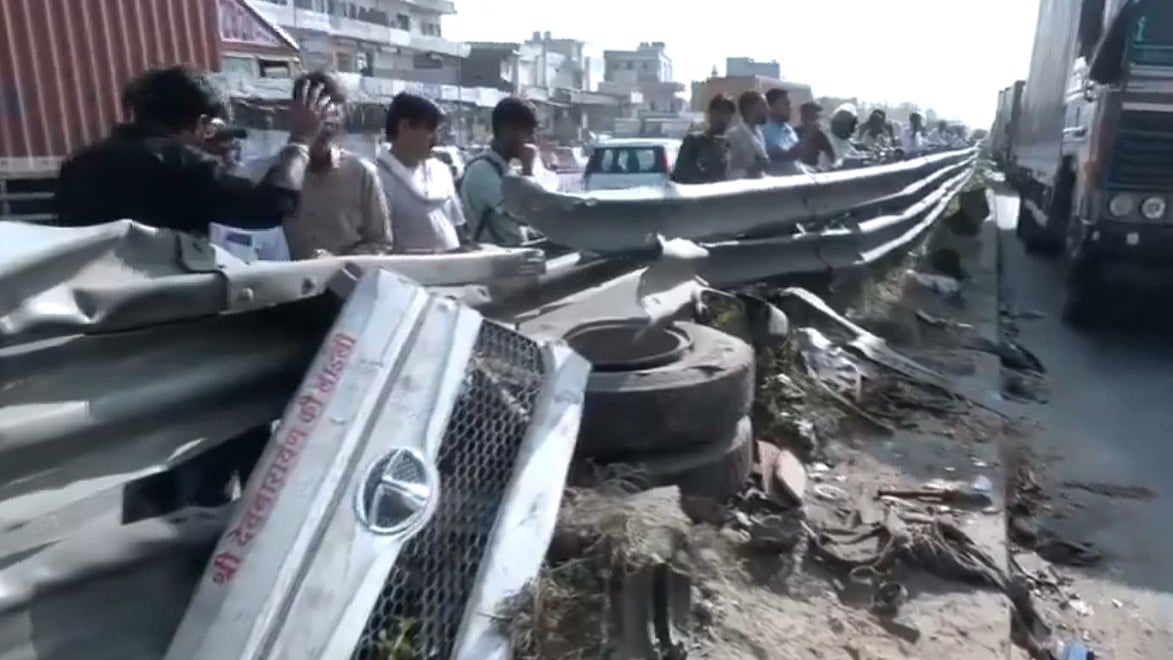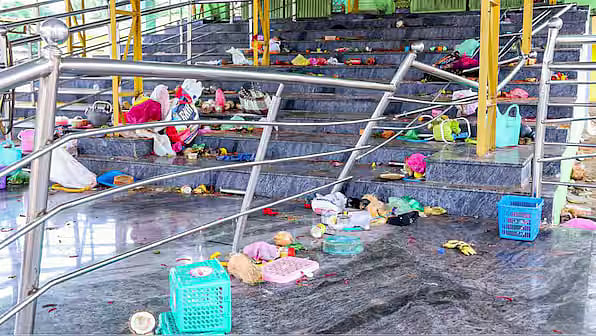In the last five days, I have offered more condolences to people than I have done in my entire life. There is no family that I know, that is not impacted. A friend wrote to me on Facebook, “11 friends died in 72 hours”. Our professional circles see obituaries. Our WhatsApp is full of pleas for help. Our social media timeliness are full of people seeking the most basic things – oxygen, hospital beds, life-saving drugs. Everywhere, I hear the sobs of grief layered on quiet rage. India is grieving, most of us are bereaved, and it is going to take a long time to get over this.
Most of us don’t believe the numbers put out by governments in their attempts to portray all is well. Nor do we believe them when they say there is enough oxygen, life-saving drugs and that the number of dead runs into less than hundred. We are seeing obituaries running into pages, people sharing stories on social media about loved ones dying. And, then there are the pictures and videos of pyres burning. Most of us will be haunted by those scenes till the end of our lives.
Down, not broken
While all appears bleak, it isn’t. Last year, the most powerful nation in the world, the United States, went through a similar crisis. People waiting on gurneys for hours before getting hospital admission. As late as January 2021, London’s hospitals were swamped with Covid cases, with oxygen almost running out. Italy’s struggles with Covid are well-documented, as are the sheer numbers who died waiting for treatment and oxygen. Doctors in all these countries were put in the unenviable position of having to decide who lived and who died. We were told that while healthcare systems were broken, it was also a once-in-a-lifetime pandemic. Nowhere was the narrative about the nations themselves being broken.
There is a narrative that India is broken. India is in the dumps. While it may seem that way, it is not the truth. For example, a few days ago – a bunch of people got together to organise the airlifting of oxygen concentrators from China. They started a fund-raising campaign on Ketto. They wanted to raise Rs.5 crore to buy and airlift these to India. Within 24 hours, the funding need was met and now, they are looking at getting in more. Across India people have begun getting together to help one and other.
Building back better
There are people manning phones, verifying numbers, finding people beds, hustling for oxygen. There are people who have given up their life savings to help others. People have opened up their hearts and wallets for others they don’t even know. This is not the hallmark of a nation breaking down or of a broken people. It is the hallmark of a people who will stand together and help each other. And, somehow in our anger at the government, the rage at the system and our grief at our losses, we have forgotten the kindness of strangers. The generosity of those who don’t have much. The large-heartedness of communities that band together to help. This is what will help us build back better.
But we can’t build back if we don’t know the extent of the damage, and the extent of the rot. And the starting point of this is being honest about numbers. We owe it to everyone who died battling this virus that we at least acknowledge their deaths. Politicians cannot hide these because it makes them look bad. Not having reliable data – whether it is the number of dead, or the GDP growth rate – does not make you look better. It makes you look less trustworthy. When people know, their government is lying to them – when the evidence to the contrary is all around them – then they will ask a simple question: ‘What else is the government lying about?’.
Questions, questions
As a people who are in mourning for our loved ones, both our anger and our grief are real. Right now, the tendency to hit out is great. But, to demand answers, we need to be calm and collected. How did we get to the stage where the capital city of one of the most powerful nations in the world is gasping for oxygen – while Central, state, and local governments are busy playing pass-the-buck. How did we get to the stage when the richest city in the country ran out of life-saving medicines, when every single scientist was telling us the second wave was coming?
People died because hospitals ran out of oxygen. People died because they couldn’t get their hands on life-saving medicine. People died because our politicians were too busy campaigning to do work. People died because those in charge were too busy with pronouncements and publicity, and not enough with planning and implementation.
How did we get here – there is time for that reckoning, and it is not now. Right now, it is time to regroup and help the nation solve the problem. But ask questions and demand answers after this crisis is over – we must. For now, we must do what we can, because those who govern us cannot.
The writer works at the intersection of digital content, technology and audiences. She is a writer, columnist, visiting faculty and filmmaker.









